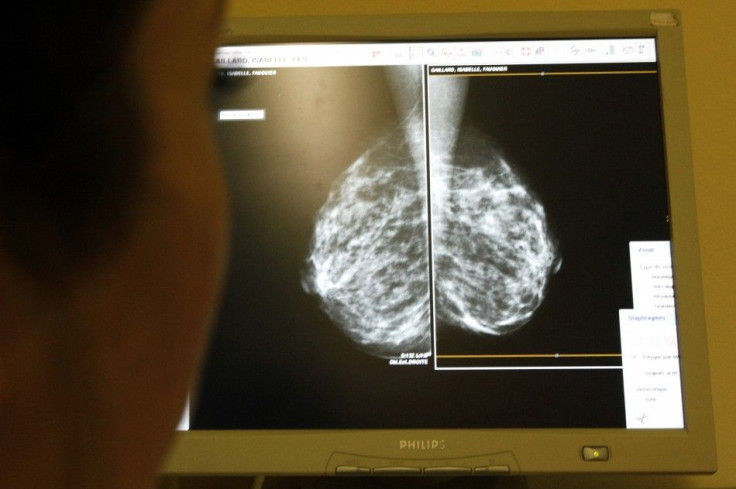Breast Cancer Patients On Opioids Less Likely To Stick To Hormonal Treatment

As the U.S. struggles with an opioid epidemic, a new study finds breast cancer patients are less likely to keep up with their vital treatment when they take opioids for pain relief.
Adjuvant endocrine therapy, also known as hormone therapy, is a treatment used by breast cancer patients to prevent the cancer from returning after surgery, chemotherapy or radiation therapy. Researchers found the use of opioids was “significantly associated" with the failure to stick to the hormone therapy and also to a higher risk of death.
"It's not a big secret that the U.S. uses more opioids than any other country in the world," researcher Rajesh Balkrishnan of the University of Virginia School of Medicine's Department of Public Health Sciences said in a statement. "Clearly there has to be better management of opioids in the elderly cancer population."
Pain Management Among Breast Cancer Patients
A reason why patients might not stick to their treatment regimen may be due to the pain involved in the hormone therapy, rather than because of the use of opioids, said researcher Leslie Blackwell, a pain-management expert at the UVA Health System. Blackwell reminded that the pain is why patients need opioids in the first place.
Chronic pain related to treatment affects up to 60 percent of breast cancer survivors. Patients often undergo the hormonal treatment for a decade to prevent the cancer from returning.
"The main problem is that these hormonal medications ... have so many side effects that women do not want to take them. They can cause really severe joint and muscle pain in a significant number of women," Blackhall said in a statement. "These women switch from one agent to the other but still can't tolerate them. They are then given opioids for the pain, which may or may not help. The opioids may themselves add to the mortality, but we don't know. More data is needed."
Researchers looked at treatment adherence among more than 10,000 women with an average age of 72. Younger, single women who had more advanced cancer were more likely to take opioids, as well as patients with depression. Those who underwent chemotherapy and surgery were more likely to to take the drugs, except women who received radiation therapy. Researchers believe that women who underwent radiation therapy weren’t as likely to take opioids because the treatment is more targeted and causes less pain.
"These results underscore the importance of a balanced approach to the utilization of prescription opioid medications," researcher Virginia LeBaron of the UVA School of Nursing said in a statement. "By balanced approach, I mean that it is critically important we ensure that prescription opioid medications are accessible to cancer patients who need them, but at the same time we must ensure we have appropriate systems in place to mitigate risk and reduce potential harms related to these medications."
The findings were published in the scientific journal Breast Cancer Research and Treatment.
© Copyright IBTimes 2024. All rights reserved.





















